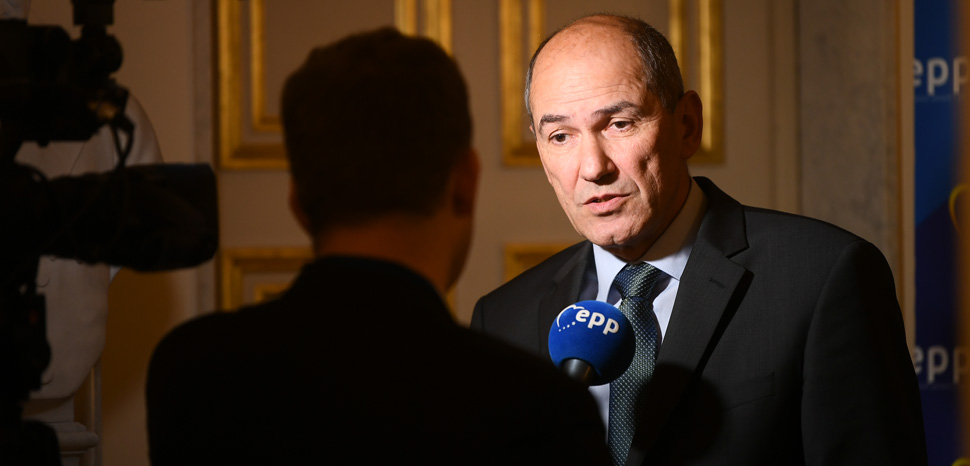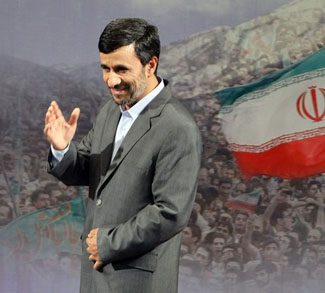The celebrations of Marine Le Pen’s defeat have overshadowed the vanquishing of another populist leader in Europe. Last month, on the same day that Macron defeated Le Pen, Slovenia’s Janez Janša, a Trump apologist and acolyte of Hungary’s Victor Orbán was comprehensively defeated by Robert Golob, a newcomer to politics. His new green-liberal Freedom Movement won 33% of the vote compared to Janša’s 25%.
Janša’s defeat is an important moment for Europe. He had adopted the Orbán playbook in full. He made similar outlandish claims that his country was under attack by an international left-wing conspiracy. Like his Hungarian counterpart, he launched a war on independent media, launching personal attacks on journalists and opponents via Twitter. He defunded Slovenia’s neutral press agency, which resulted in the firing of journalists. Like Orbán, the judiciary was in his sights. After his emergency Covid legislation was judged illegal by the country’s Constitutional Court, he launched an onslaught on judges. He even followed Orbán in backing Trump’s lie that the US election had been stolen.
All this left deep scars on Slovenia’s democracy. Freedom House found during Janša’s time in office that the country had suffered the most dramatic democratic decline of all the 29 countries that it monitors on criteria in terms of legislative process, media independence, and corruption.
The government were bullies. They threatened and intimidated. They packed institutions with their own supporters. Anyone who criticized those in power – the basic premise of a free society – was attacked, insulted, and punished. They were enabled by MPs who voted in laws that harmed the people they were supposed to be representing.
A father of two, for example, faced a fine of 10,000 euros for “organizing protests.” An expert in her field lost her job because she dared to oppose the decisions of the authorities. A police officer who took a selfie with a protester was later sanctioned for it.
Janša’s destructive influence was not confined to democratic backsliding. His government brought about the political takeover of the police, and the political takeover of education. They backed corporate interests at the expense of the people, allowing the privatization of water. Meanwhile, they did nothing to protect ordinary people from the cost-of-living crisis – as electricity, heating, and food bills soared.
In the end, it was the huge mobilization of civil society – especially younger voters – that defeated Janša’s government. Thousands of Slovenians protested in the main square of Ljubljana every Friday for 105 weeks. One hundred civil society organizations decided to form Voice of the People last September to bring together the issues voters felt the most strongly about across the entire country.
My campaign organization, the Institute 8th of March, organized over 2000 volunteers to work in the field. Together, we took our message to the streets in many cities and villages and inspired people all over Slovenia. We didn’t get hung up on which parties people supported. Instead, we based our campaign around key issues: support for the welfare state, respect for freedom of speech, public health, and education.
It was a campaign of hope. We were in every part of the country and talked to people about the laws that bothered them most. We made it clear how important it is for everyone to create their own campaign and identify five other people they could bring to the polls.
In response, the Government harassed us on social media and sent an inspector from the Minister of the Interior to investigate fabricated claims that we had violated electoral law during the campaign. Where they sowed fear, we responded with kindness. We wore flowers around the country during the last week of the campaign. Each flower became a harbinger of change, a call for spring. People confided in us. We were told countless times: “For the first time, we have a feeling our voice counts.”
On election day, we discovered that we had succeeded. Our “Go Out and Vote” campaign had won the day by increasing participation – especially among the young. In the last General Election in 2018 turnout was at 52,64% (low compared to the country’s historic voting record) and voting abstention was highest among the young. Turnout in Sunday’s parliamentary elections was 70%, the highest since 2000.
Slovenia’s results are an important reminder – just weeks after all hope seemed lost with Orbán’s landslide victory – that if civil society is mobilized it is possible to defeat illiberal populism. Fortunately, Janša had far less time to entrench his power than Orbán. While the democratic decline driven by Janša was significant, it did not transform public perceptions in a way that Orbán’s propaganda machine has.
The real triumph of this election was the on the ground mobilization – the individual acts of persuasion that resulted in around 20% of voters shifting their voting preference since the last election. I watched the results come through on Sunday night with volunteers from the Go Out and Vote campaign. We couldn’t stop smiling. For the majority like us who wanted to build a better Slovenia, it feels like the future is ours. To those who feel despair that their leaders are weakening democracy know this: change is possible. Love, hope, and honesty can win.
Nika Kovač is a director of the Institute 8th of March, a group of young women under 30 who helped win the referendum against water privatization and participated in the Go Out and Vote campaign during the election campaign.
The views expressed in this article belong to the authors alone and do not necessarily reflect those of Geopoliticalmonitor.com




